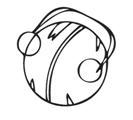"Smiling faces I can see
But not for me
I sit and watch
As tears go by......
All I hear is the sound
Of rain falling on the ground".
An
NHS drug rehabilitation programme helped to save her from a fate that
overwhelmed so many of her contemporaries. She then moved to New York
where in 1979 she returned to the recording studio with the critically
acclaimed Broken English album. This was a dramatic career comeback with gritty renditions of songs like Dr Hook's The Ballad of Lucy Jordan
(a narrative of disillusionment and mental despair: she knew what she
was singing about) and her powerful upgrade of John Lennon's Working Class Hero.
Poetry and rock music are uneasy bed-fellows and
few attempts at this kind of bluesy literary fusion have succeeded and
you might also argue who needs poets in rock music when we have Leonard
Cohen, Joni Mitchell, Bob Dylan (no relation to Robert Frost), Patti
Smith, Tom Waits. Linton Kwesi Johnson and John Cooper Clarke? Scanning
my record collection I have a few examples. Van Morrison has ventured
into literary territory a few times - for example the largely spoken
word Rave on John Donne on the Inarticulate Speech of the Heart album. The Yeats estate refused, however, to allow him to record his interpretation of the poem Crazy Jane on God. Joni Mitchell was able to include on her album Night Ride Home a song Slouching towards Bethlehem which was based on the Yeats poem The Second Coming. (I haven't got it but there's also an album by the folk rock group The Waterboys called An Appointment with Mr Yeats comprised entirely of his poems).
In
my record collection I also have one of the John Betjeman albums -
Banana Blush - that were released on the Charisma label nestling in the
roster alongside Genesis and Lindisfarne. In a rare instance of my
cultural interests intersecting with my father's, the national Poet
Laureate recited some of his most famous poems accompanied by music.
Here is a Guardian account on this album -
Nick Cave and Jarvis Cocker have cited it as an important influence for
them and Morrissey was a kindred spirit too: in The Smiths' Every Day is Like Sunday he references Betjeman's critique about modern urbanisation exemplified by the city of Slough ("Come, friendly bombs, and fall on Slough - It isn't fit for humans now..."). The NME interviewed the elderly Betjeman in 1974: he thought pop music was rather "vulgar".
Another album I have is the John Cale tribute to Dylan - no, not his Bobness on this occasion, but Dylan Thomas - in the album Words for the Dying with
Eno on keyboards. And that reminds me that in amongst my admittedly
not extensive collection of jazz albums is a classic of British jazz: Stan Tracy's Under Milk Wood. This is wonderfully melodic jazz composition from 1965 which was
inspired by Dylan Thomas's radio drama play set in a Welsh village. It
was made famous by a performance with the lead role played by a fellow
Welshman, Richard Burton. Stan Tracey's album meanwhile is widely considered to be one of the best jazz recordings made in the UK.
My wife Hiroko and I are going to see a performance of Dylan Thomas's original play in July at the National Theatre in London which will be our first venture back into theatreland since the pandemic. It's a vivid tragi-comic portrait of the local characters in a Welsh village called Llareggub. That sounds like an authentic Welsh language name until you realise it is two English words spelt backwards in a Dylan Thomas in-joke! I'll let you work that one out!
Mark Carvell







Geen opmerkingen:
Een reactie posten